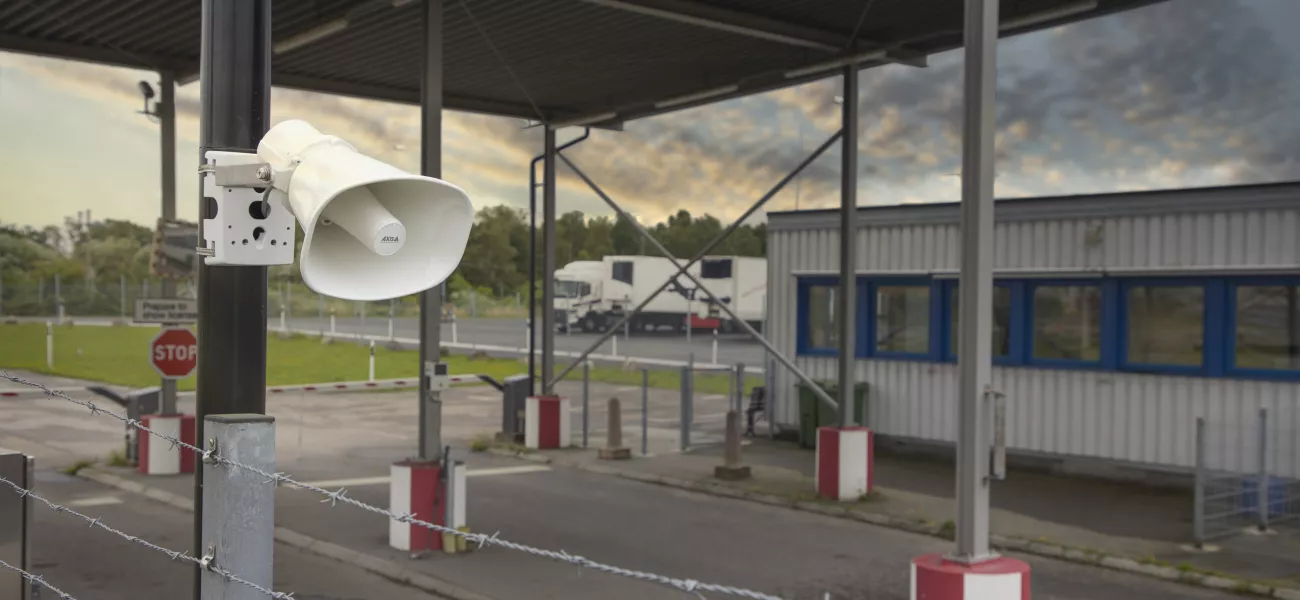
By now most people are aware of the various ways network audio can be used to bring value to different environments. This could be prerecorded announcements reminding commuters of safety procedures on trains, messages to shoppers about the latest discounts, or even reassuring students that help is on the way following an incident on a school or university campus.
From an industrial perspective, the applications and use cases are just as strong and impactful. Network audio could be used to support different aspects, from enhancing security to aiding day-to-day operations, and even improving safety across your factories and plants. This goes for hazardous areas as well, where explosion-protected audio equipment is required.
Network audio vs analog – what’s the difference?
Before looking specifically at the use cases for audio in critical infrastructure and industrial plants, it’s useful to first discuss the differences between network audio and traditional systems.
Network speakers are all-in-one audio systems, 100% IP end points and connect to the standard network, which makes installation, configuration and management simple – without the need for dedicated audio cabling. You only need a single cable for both power and connectivity. Your operators can remotely monitor the entire system more efficiently and quickly identify and address any issues which arise, resulting in a system you know works as intended. In turn, this helps reduce downtime and improves solution efficiency, positively contributing to your business’ success. Now that this distinction is clear, let’s take a closer look at how audio can be used to support safety, security and operational efficiency in your industrial sites.
Defending the perimeter against intrusion
Audio solutions are only one part of your arsenal implemented to ensure the security of a critical site. Network cameras equipped with analytics also play an important role in spotting and investigating adverse activity, but audio can support by actively deterring intruders' intent on causing damage or theft.
Thermal cameras equipped with analytics spot intruders as soon as they enter the scene. A horn speaker is triggered to play a prerecorded message warning the perpetrators that law enforcement is on the way, causing them to retreat. As a result, damage to company property has been avoided, saving not only money and time, but also ensuring production continuity.
Audio helps enhance operational efficiency
Although intrusion deterrence is a main use case for audio, there are other areas within your industrial environment which can also benefit.
For example, minimizing disruption to your production line is crucial to ensuring that there are no delays in delivering products to customers. You can use audio solutions, such as voice messages to notify relevant staff of overheating or malfunctioning equipment or process errors like jammed products on conveyor belts, enabling them to quickly intervene.
If your environment is noisy, it can be hard to hear speaker messages; in these cases a strobe siren could act as a visual alert to notify staff that an anomaly has been detected. Adding audio to your toolkit ultimately means less unwanted downtime, more efficient and ongoing production processes and less material loss.
Minimizing incidents by supporting safety procedures
Maintaining the safety of workers in your environment is an absolute priority, with every process and area closely evaluated to identify and minimize risks. Even trained and experienced personnel can be involved in accidents, and you can use network audio to help remind your workforce of safety procedures.
For example, you can set automated messages to alert people that they are entering restricted or dangerous areas after they been detected by a camera equipped with intelligent analytics. This quick intervention can make all the difference by avoiding accidents, supporting workers’ health and reducing downtime. Also, health and safety reminders, such as wearing the correct PPE can ensure that their health is being prioritized.
That being said, accidents and emergencies do occur in industrial sites, and these can have disastrous consequences. Your main priority is evacuating all personnel to safety as quickly as possible, and surveillance technology can be useful in these critical situations. A combination of speakers and cameras can be valuable in assessing the situation while broadcasting live or prerecorded messages to support the evacuation efforts, where permitted. This offers the agility needed to guide personnel if the situation changes or rapidly declines, improving efficiencies and potentially saving lives. However, it should be noted that these systems act to complement the certified evacuation system in place.
Network audio adds value in myriad ways
Considering the complexity of industrial environments, you can use network audio solutions to bolster security, streamline processes, improve efficiencies and ensure worker well-being. Ultimately, the beauty of this solution lies in its functionality in a variety of scenarios eliminating the need for compromise or investment in separate system.

